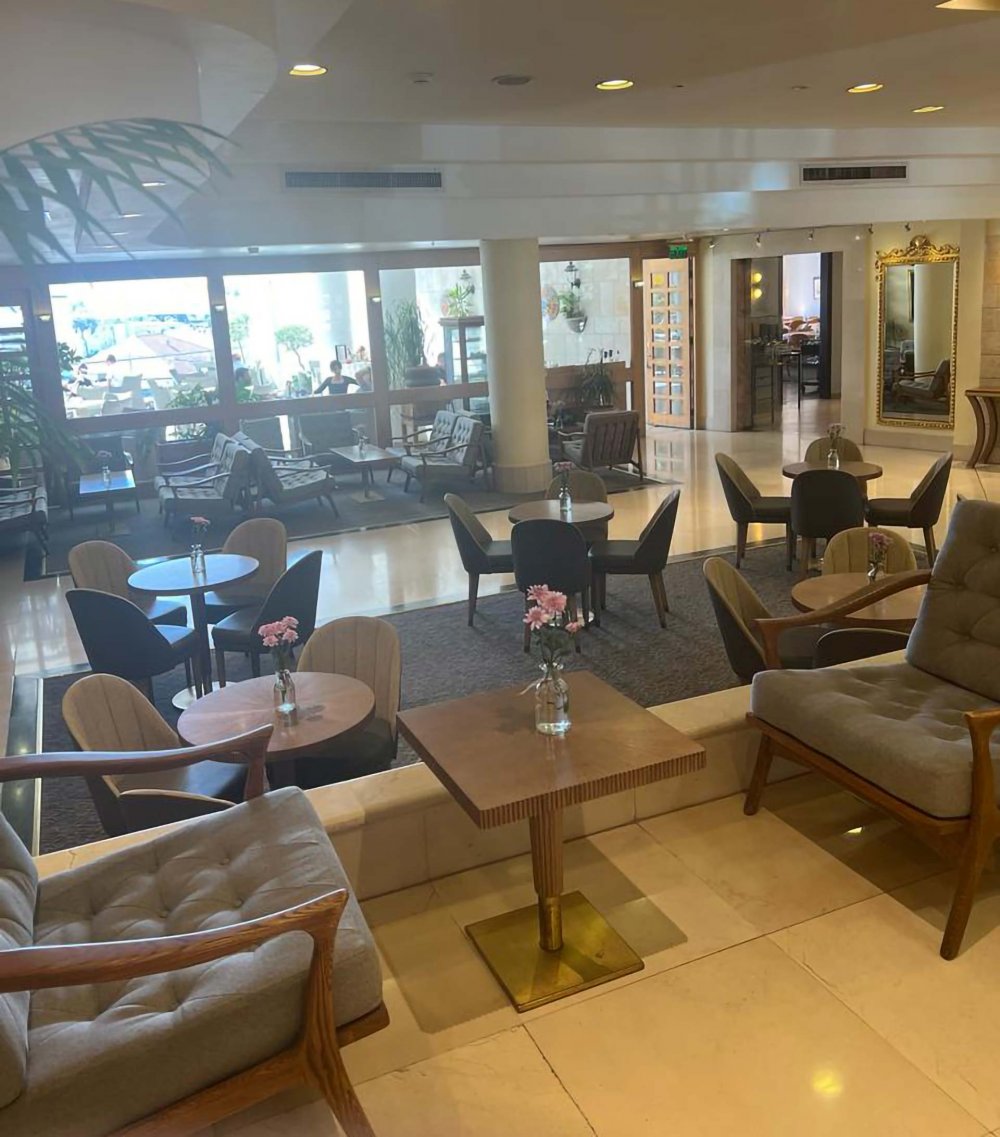Margo Tarazi, manager of the Universal Tourism Agency in East Jerusalem, has always followed Palestinian national protest calls. But in the days following the October 7 events in and around Gaza, she was faced with a dilemma: How could she go on strike while she was responsible for tourists who were stranded when Israel declared war on Gaza and the airport partially shut down?
Margo and her brother Samer come from a well-known Palestinian family from Gaza. Her relatives and her heart were with her family. Her father, Naim Tarazi, and her uncle, Zuhdi Tarazi, are well-known patriotic icons: Her father was a leading figure in the tourism industry and a well-respected member of the Orthodox Church community, and her uncle was the Palestine Liberation Organization (PLO) ambassador to the United Nations from 1974 to 1991.





